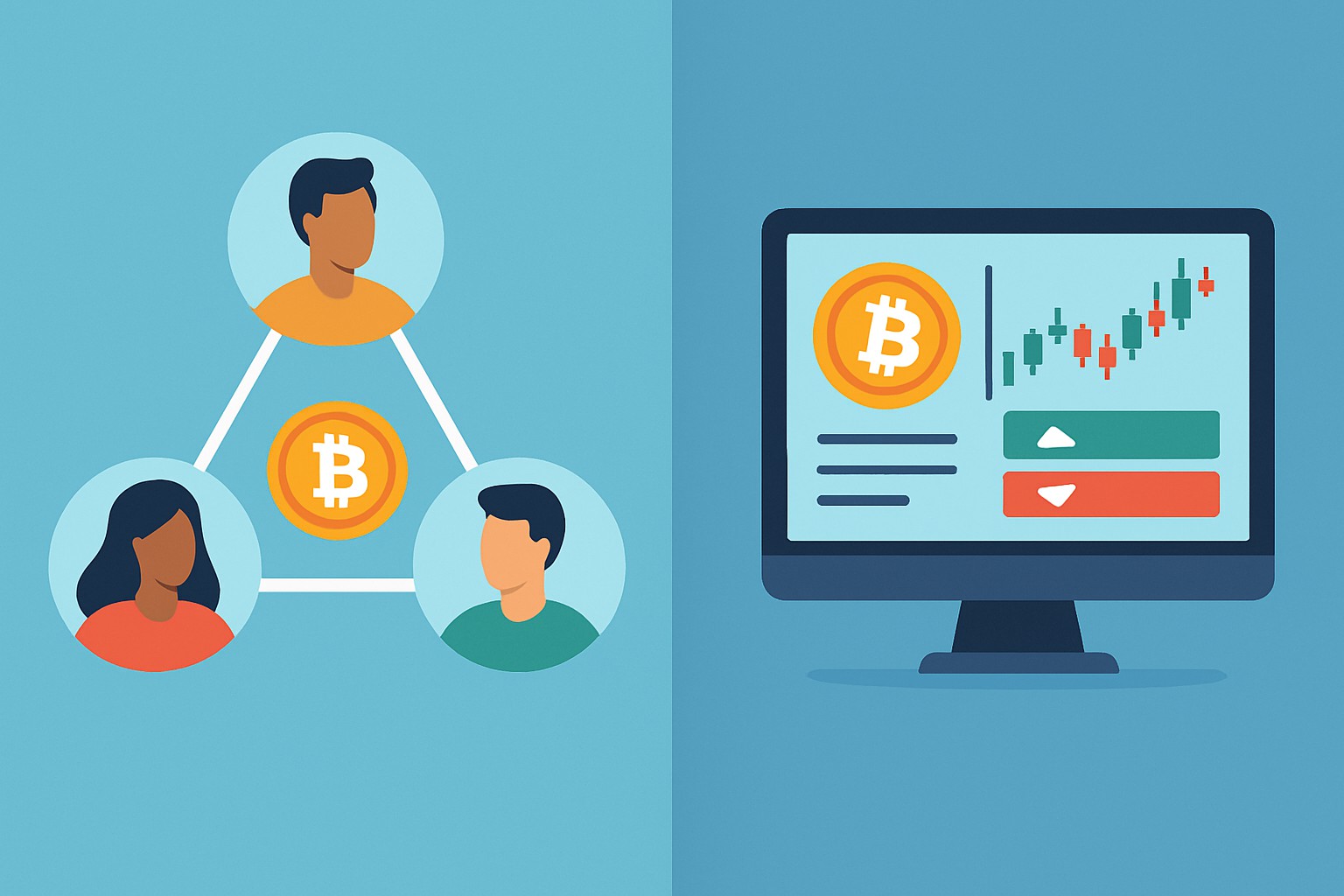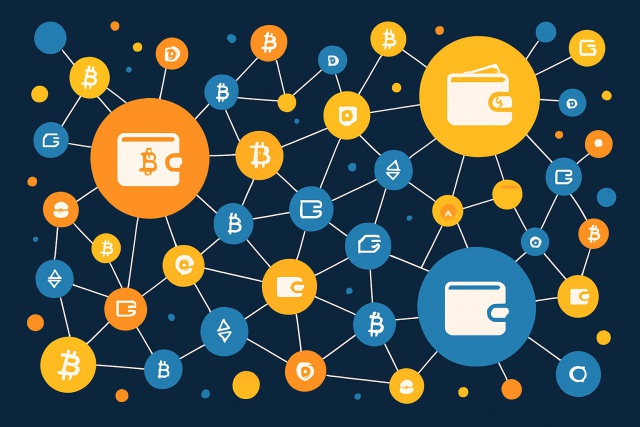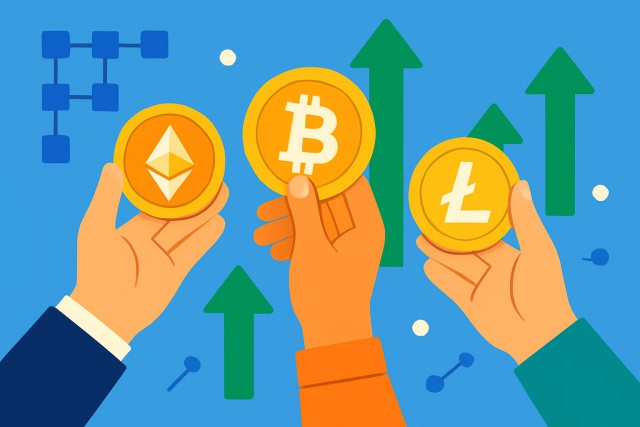Peer-to-Peer vs Traditional Exchange Trading


Cryptocurrency trading has become a cornerstone of the digital finance world, giving people the chance to buy and sell assets like Bitcoin and Ethereum in a new way. As more people join, the trading methods have expanded into two main camps: peer-to-peer (P2P) trading and classic exchange trading, with peer to peer platforms gaining popularity. Understanding these approaches matters, whether you are a newbie or a seasoned trader looking to sharpen your strategy, because your choice can affect accessibility, fees, security and how much control you get.
Taking a Closer Peek at Peer-to-Peer (P2P) Trading
Peer-to-peer trading lets people buy and sell cryptocurrencies directly with one another, cutting out the middleman or any central authority.
- Trades occur directly between buyers and sellers, skipping middlemen who might slow things down
- There’s no central authority holding onto the funds while the process unfolds which keeps things hands-off
- Escrow services often hold the cryptocurrency safe until everyone is happy with the payment
- Buyers and sellers can choose from payment options like bank transfers, cold hard cash or online wallets
- Prices usually get hashed out between the users themselves allowing more flexible and personalized deals that suit both sides
P2P platforms operate by linking buyers and sellers based on what each is offering and needing. Once a trade kicks off, the platform puts the seller's cryptocurrency into an escrow account and holds it until the buyer confirms payment. This approach offers a safety net that keeps both parties safe from any funny business. If a dispute pops up, the platform sifts through the evidence and plays referee before releasing the funds. This mix of decentralization and built-in safeguards makes P2P trading flexible and surprisingly secure.
Taking a Closer, More Personal Look at Traditional Exchange Trading
Traditional cryptocurrency exchanges are centralized platforms where users trade cryptocurrencies using an order book managed by the platform. These exchanges act as trusted middlemen who oversee transactions, custody and price discovery.
- The exchange takes centralized control over user accounts and transactions keeping everything under one roof for smoother management
- Advanced order matching engines hustle behind the scenes to swiftly connect buyers and sellers making the process feel almost effortless
- Large pools of liquidity ensure trades go through quickly and at market prices so you’re not left hanging
- Standard trading pairs like BTC/USD or ETH/BTC keep things straightforward and familiar cutting down on confusion
- Compliance with regulations helps protect users and keep shady business at bay which in my experience is a huge comfort
Trading on centralized exchanges usually kicks off with setting up an account and completing identity verification. Once that is sorted you deposit funds into your wallet on the platform and place your buy or sell orders. Then you play the waiting game as your trades settle once orders find their match.
Comparing Peer-to-Peer and Traditional Exchange Trading A Closer Look
Knowing the main differences between P2P and traditional exchange trading sheds light on their unique upsides and quirks. Things like control, speed, fees, privacy and accessibility can vary depending on the approach. Each one fits different traders' needs and goals in its own way.
| Feature | Peer-to-Peer (P2P) | Traditional Exchange |
|---|---|---|
| Control and Custody | Users hold the reins, with funds sitting in escrow only while the trade is happening | Exchange keeps your funds locked up until you decide to withdraw |
| Trading Speed | Often a bit slower, thanks to back-and-forth negotiations and payment steps | Zips along faster thanks to automated order matching, no waiting around |
| Fees | Usually lower or even negotiable, depending on the platform and how you pay | Fixed fees set by the exchange, which can sometimes feel a bit steep |
| Privacy | Tends to keep things more under the radar; payments feel more personal | Requires you to spill more personal info because of those KYC rules |
| Payment Options | Offers a wide variety, from cold hard cash to bank transfers and online wallets | Mostly sticks to bank or crypto transfers, keeping it straightforward |
| Accessibility | Open to people worldwide, often without the hassle of strict verifications | Restricted by regional rules and those pesky KYC checks |
| Security Risks | The usual suspects: fraud and escrow hiccups, all depending on who you are dealing with | At risk from exchange hacks and occasional system outages—you gotta trust the system |
| Regulatory Oversight | Less buttoned-up regulation and generally runs decentralized | Tightly regulated with plenty of compliance hoops to jump through |
Benefits of Peer-to-Peer Trading
There's something genuinely refreshing about peer-to-peer trading that goes beyond just the transaction itself. It lets people connect directly, cutting out the middlemen and all their fees—one less thing to worry about, right? Plus, you get to negotiate terms in a way that feels more personal and flexible, like striking a deal with a friend rather than ticking boxes on a contract. Not to mention, this kind of trading often speeds things up and boosts transparency, making the whole process smoother and a bit more trustworthy in my experience. All in all, it is a win-win that’s gaining momentum for good reasons.
- Often boosts privacy by asking for fewer personal details, which is a plus if you are cautious about sharing too much
- Opens the door for users everywhere to trade, even in places where exchange options are scarce or hard to come by
- Provides a variety of payment options from local cash to digital wallets, giving people much-needed flexibility
- Puts users in the driver’s seat for timing and methods of transactions without relying on clunky centralized systems
- Cuts down the need to rely on centralized exchanges, which lowers the risk of downtime or regulatory shutdowns
P2P trading really shines in places where getting your hands on centralized exchanges is either tricky or outright banned. It’s a great fit for those who like dealing in cold, hard cash or just want to dodge the headache of those lengthy identity checks.
The Hidden Perks of Sticking with Traditional Exchange Trading
- Offers much higher liquidity for many popular cryptocurrency pairs making quick trades feel like a breeze
- Settles transactions in a flash through automated systems so you’re not left twiddling your thumbs
- Comes with user-friendly interfaces designed to welcome both greenhorns and seasoned traders
- Provides a full suite of trading tools from charts and indicators to portfolio management all ready to help you stay on top of your game
- Supports advanced order types like limit, stop-loss and margin trading giving you the flexibility to match whichever strategy you prefer
Traditional exchanges usually do the trick for active traders, especially those deep into margin trading or futures markets where liquidity and lightning-fast execution are the name of the game. Individuals who appreciate a good dose of regulatory oversight and compliance often feel more at ease on these platforms, knowing there’s a solid safety net of security and legal protections.
Risks and Things to Keep in Mind for Both Trading Methods a Handy Heads-Up
Both peer-to-peer and traditional exchange trading come with their own perks but also risks that savvy users need to watch out for. With P2P trading there’s always a chance of running into scams or fraud if the other party isn’t playing fair. Escrow services try to keep things safer.
- There is always the risk that one party might drop the ball on their payment or delivery commitments and disrupt the entire process
- Escrow services are designed to help but can fail and cause annoying delays or unexpected headaches when settling trades
- P2P markets usually fly under the regulatory radar more than others so consumer protections are not as strong as you might hope
- Centralized exchanges are not exactly Fort Knox. They have been targeted by hacking sprees that put user funds at risk
- System downtime or scheduled maintenance can occur when you least expect it and temporarily block access to trading or withdrawals
- Sometimes exchanges throw a curveball by imposing withdrawal limits or freeze policies that restrict your ability to move funds as freely as you would like
Peer-to-peer trading often feels like a trusted handshake between neighbors—casual, flexible, and built on good old personal trust. Traditional exchanges, meanwhile, come across more like formal markets with their clear-cut rules, security safeguards, and official records. They bring plenty of structure and protection to the table, even if sometimes that means giving up a bit of control and privacy in the process.
Choosing Between Peer-to-Peer and Traditional Exchange Trading for Your Best Fit
Choosing between P2P and traditional exchanges often boils down to what you value most—whether it’s privacy, lightning-fast trades, convenience, or how much risk you’re willing to shrug off.
It really pays to know what you’re after before diving in.
Think about whether you’re comfortable negotiating directly or if you’d rather lean on guided platforms that hold your hand.
Make sure you’re not trying to dance where the music’s not playing by finding out which platforms are legal and practical in your area.
Figure out if you want to take the reins and manage your own funds or if you’d prefer trusting a centralized exchange with all its features.
Start small on each one to get the lay of the land. Feel out their usability, fees and support before you decide to throw in the big bucks.
When you're just dipping your toes into peer to peer trading, it's usually smartest to stick with the big players like LocalBitcoins or Paxful. They tend to have your back with reliable escrow and dispute resolution services which can be a real lifesaver. Always take a moment to peek at the reputation and ratings of the individuals you're dealing with—it's worth the tiny extra effort to dodge potential scams. If you prefer the classic route go for well-established exchanges like Coinbase, Binance or Kraken. These guys are known for locking down security and playing by the regulatory rulebook.

Start Your Crypto Journey with Coinbase Today
Ready to enter the cryptocurrency market but unsure where to begin? Coinbase makes buying, selling, and storing digital assets simple and secure for beginners and experts alike.








